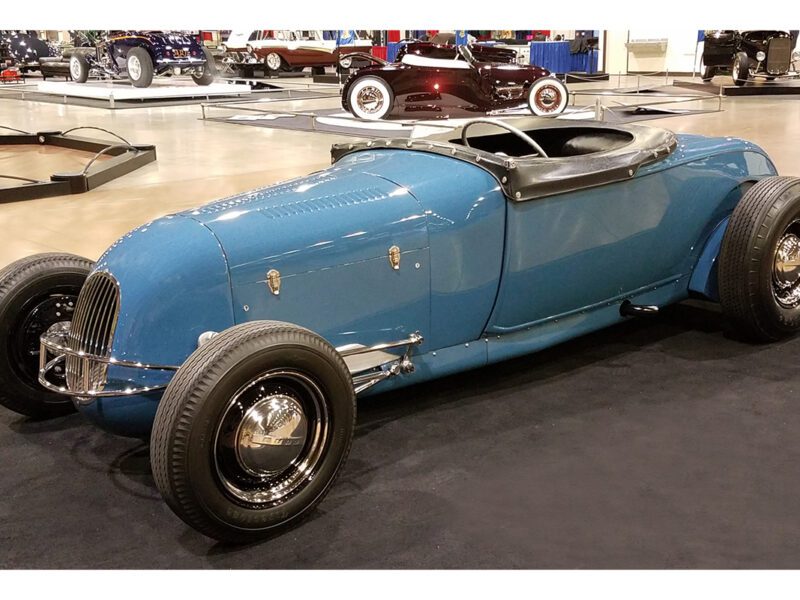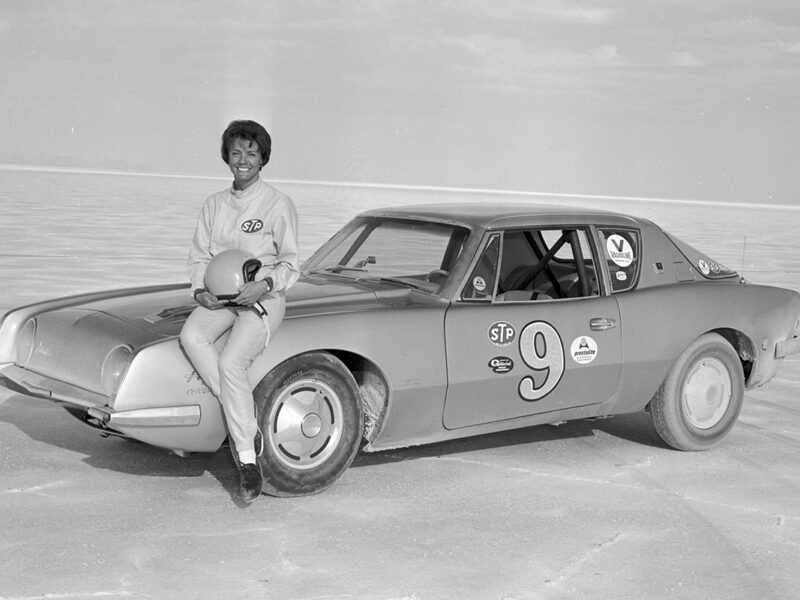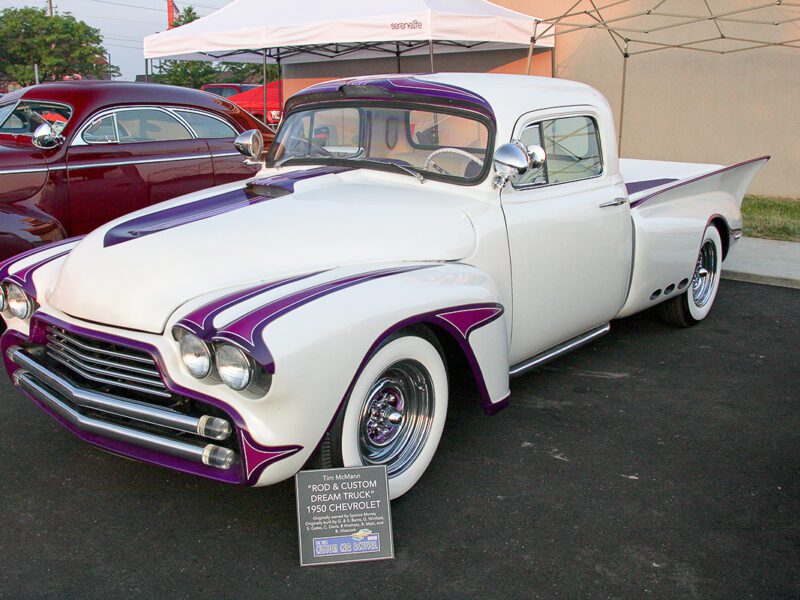Midwest Scrapbook – A Gallery of Swingin’ 70s Rods, Vans and Machines
Editor’s Note – Keep scrolling down for the amazing, historic images from the Midwest Scrapbook.
The 70s get a bad rap when it comes to American cars. Insurance regulations and the gas crisis resulted in plunging performance from the factory, while increasing safety concerns and new regulations brought about compromised design and styling. The result was a decade mired in mediocrity.
Despite the malaise of the era, though, a great deal of creativity came from the hot rodding community. Street machines, street rods, custom vans and all-out show cars were getting tricked out like never before, with some far-out styles making up for sometimes lackluster performance. There’s plenty of evidence of that in this time capsule of images from the late-70s. Shot mostly in Kansas, Nebraska and Colorado, they’re a wonderful snapshot of the era’s styles – some good, others a little more out there!
Even with rising fuel costs, the street machine scene was flourishing. It was arguably as flamboyant as ever, with wild paint schemes, wheel flares, side pipes, jacked-up stances and flashy engines. And don’t forget the CB radios and whip antennas!
Street rodding was blossoming during this decade, too. Resto-rods came into vogue, ushering in an era of wire wheels, two-tone paint and a proud display of factory trim and accessories. Though resto rods were prominent, there were still a few rodders carrying the torch of traditional-flavored rods during this time, as well.
And who can forget vans? First popularized in the early-70s, custom vans were all the rage in the middle and latter part of the decade. They got more radical throughout the era, offering slab-sided canvasses on which to paint, cut, French, mold, and generally take all the old customizing tricks to a new level.
Speaking of customizing, a few rodders were beginning to rediscover traditional-style ’50s customs during the late-’70s. The movement would pick up more steam in the decade to follow, but it’s encouraging to see some clean examples from early proponents.
Mix in some wild show rods, murals and plenty of button-tufted crushed velour, and you’ve got the makings of a wild, colorful era. We hope you enjoy the look back.
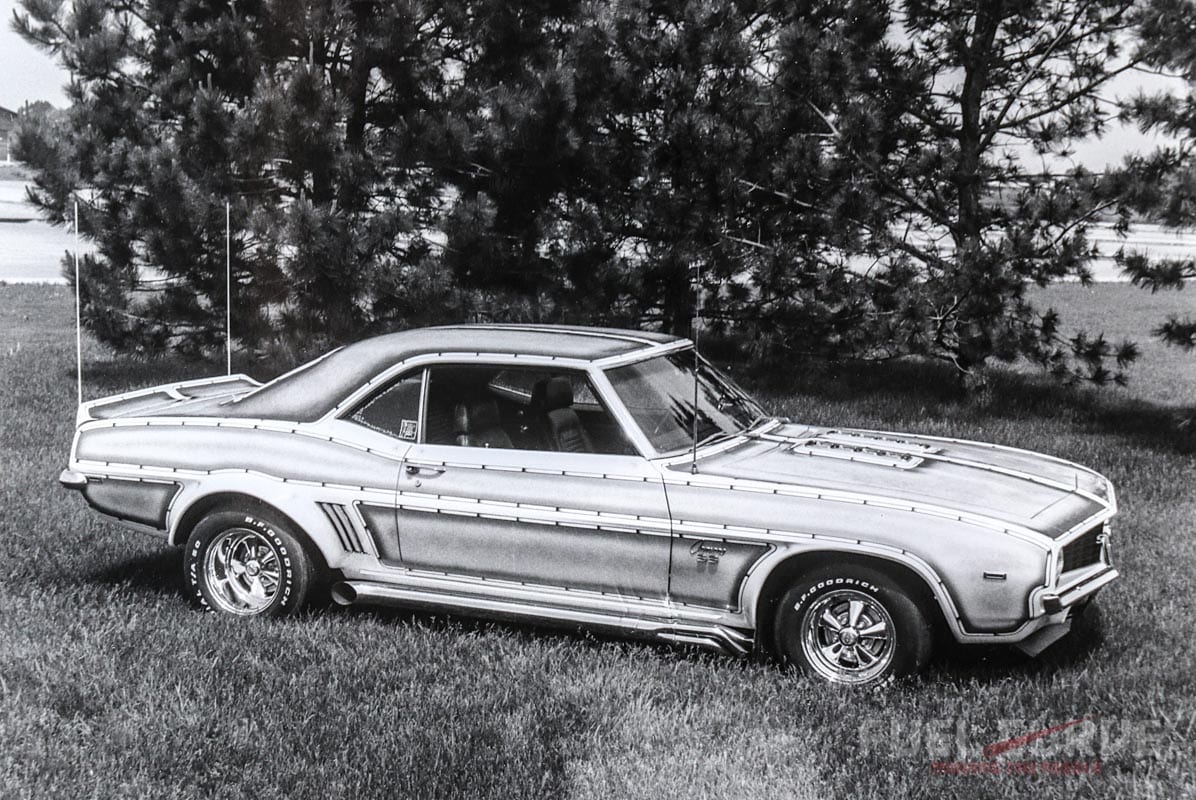
Panel paint, wheel flares, side pipes, deep-dish Cragars, whip antennas – yep, Terry Hinricks’ ’68 Camaro was the epitome of late-70s street machine cool.
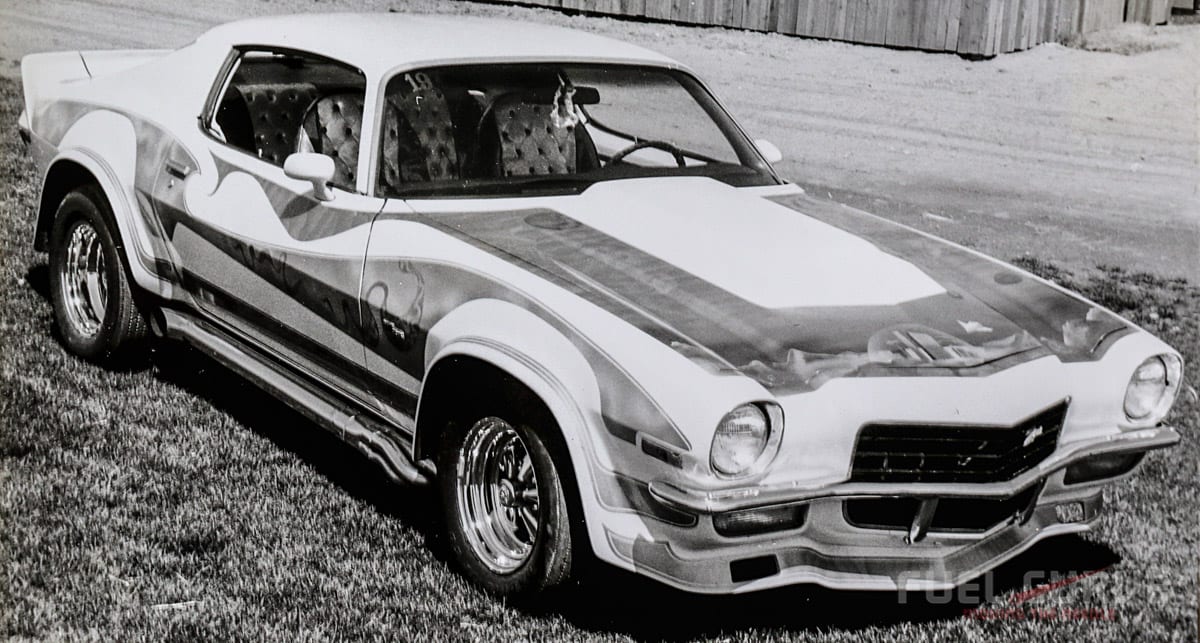
Flares and panels – plus murals! – made Tim Winick’s ’72 Camaro a standout. Check out the button-tufted velour seat inserts.
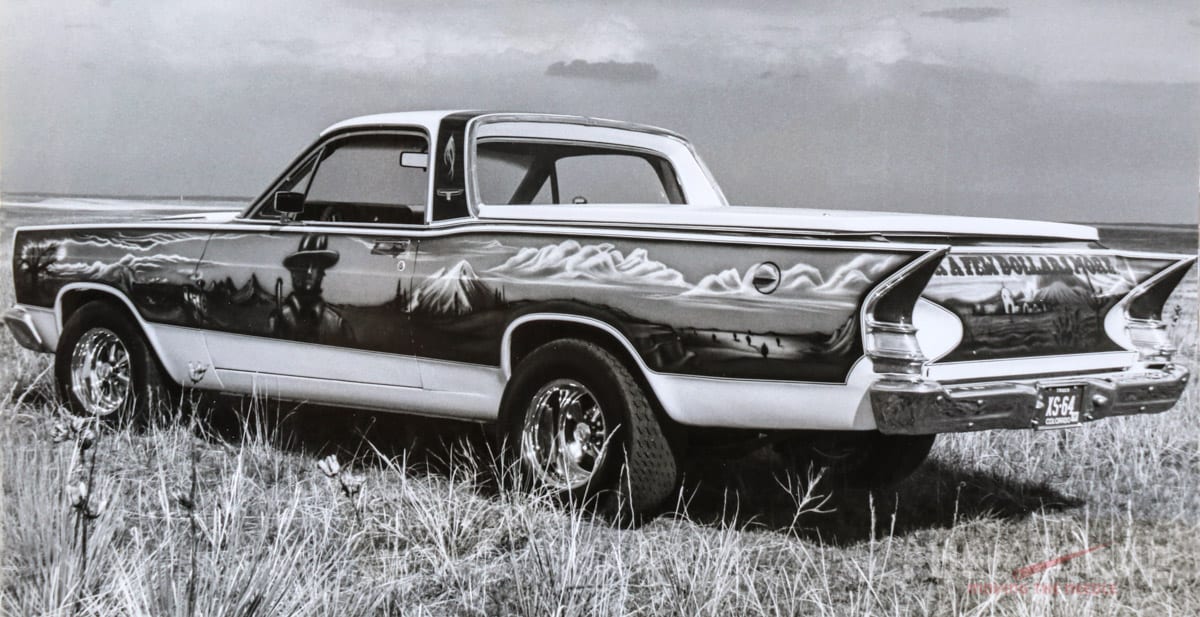
How about an old custom standby – ’56 Packard taillights – on a ’67 Ranchero? Sure, why not? The intricate murals were inspired by the Clint Eastwood western “For a Few Dollars More.”
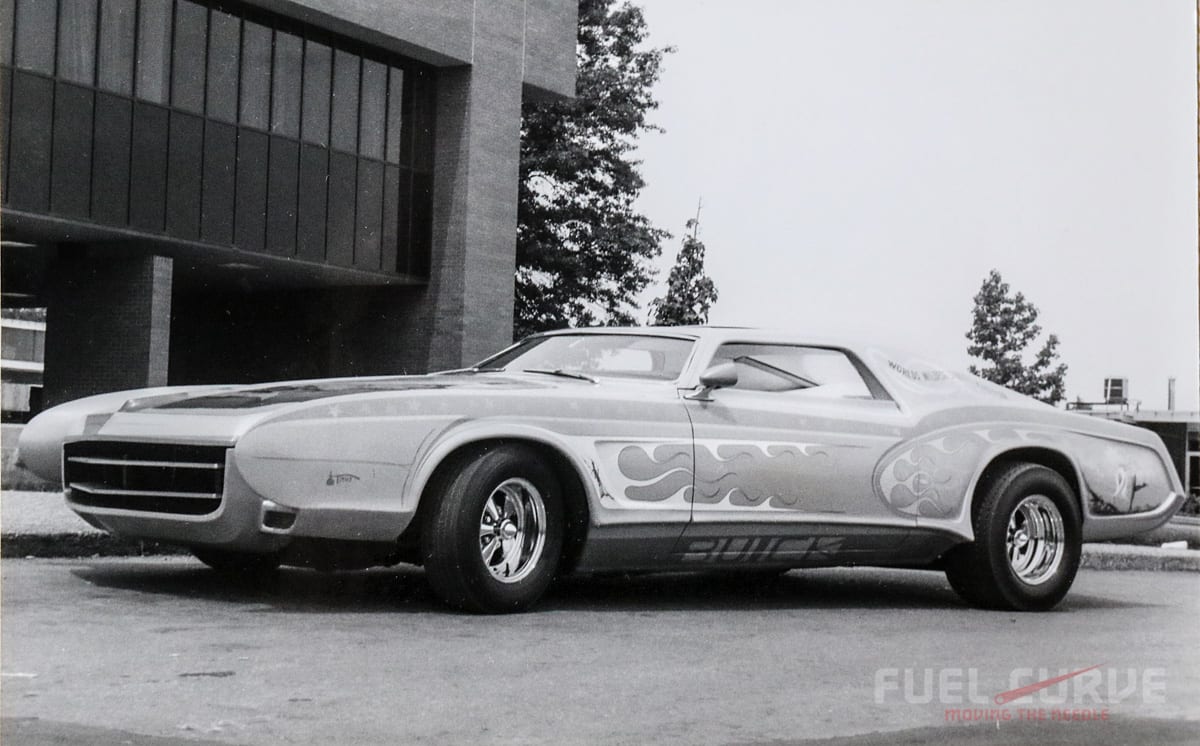
Elden Titus – whose brother, Jerry, would later found the Kustom Kemps of America – built this wild ’67 Riviera that combined plenty of traditional custom techniques with wild 70s-style flair.
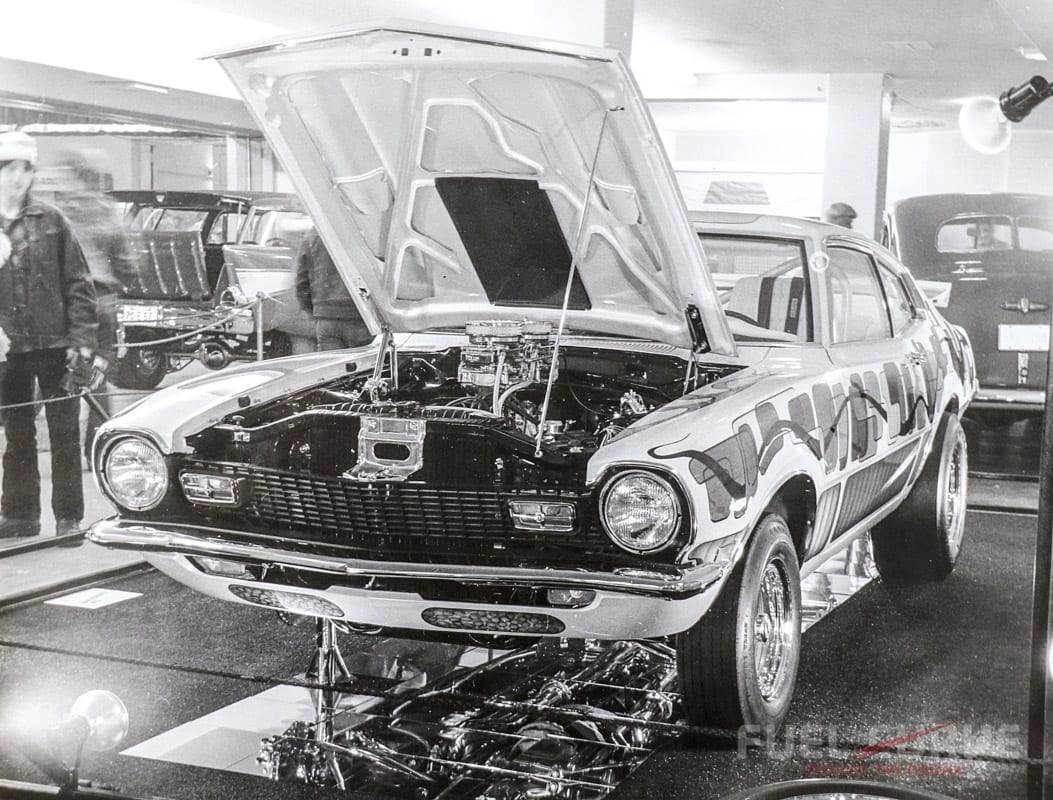
Captured at an indoor show, this Maverick has all the era’s hallmarks – panels and ribbon graphics, an abundance of chrome, jacked-up stance and dual quads on a tunnel ram.
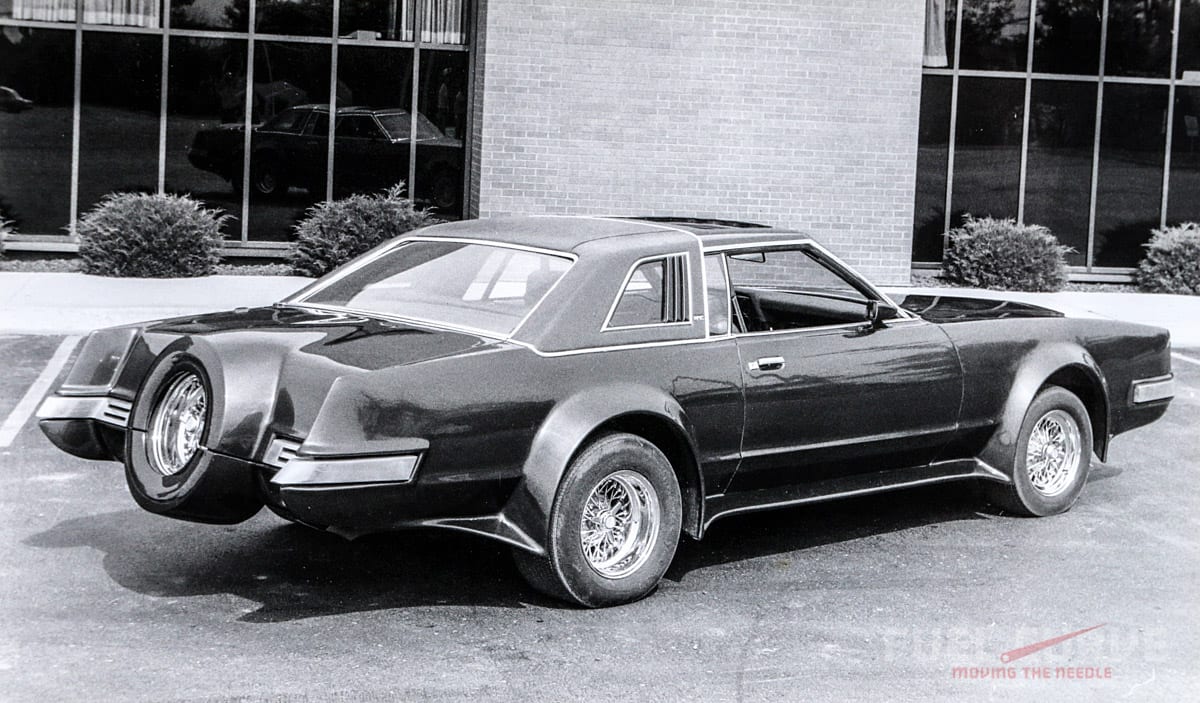
Well-known customizer Darryl Starbird raised his son, Cliff, on custom traditions, so it was no surprise that 19-year-old Cliff turned the torch on an almost-new ’78 Cougar.
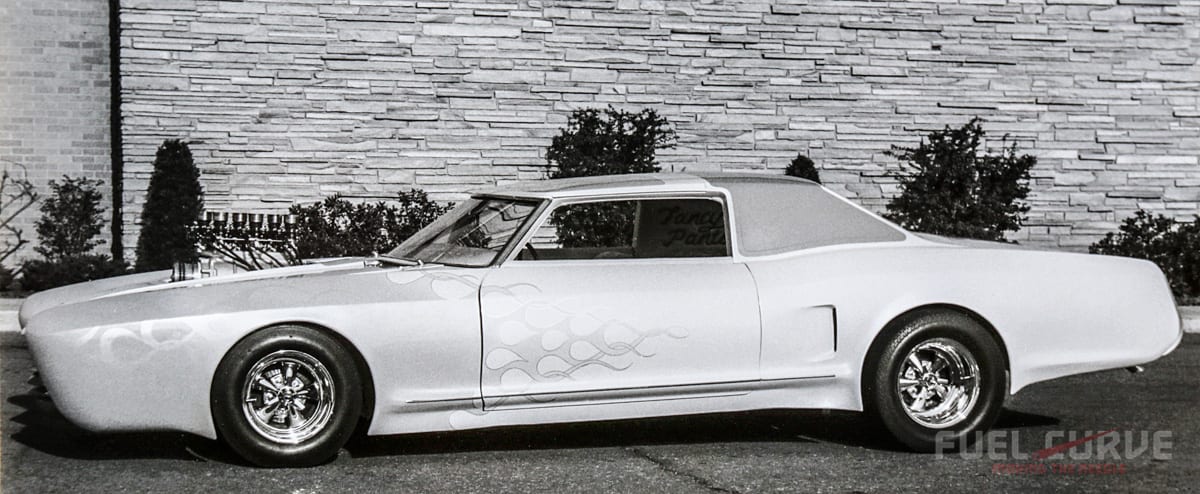
Another Elden Titus creation, this chopped ’64 Riviera was pearl white with pink flames, and had six carbs on top of the blower.
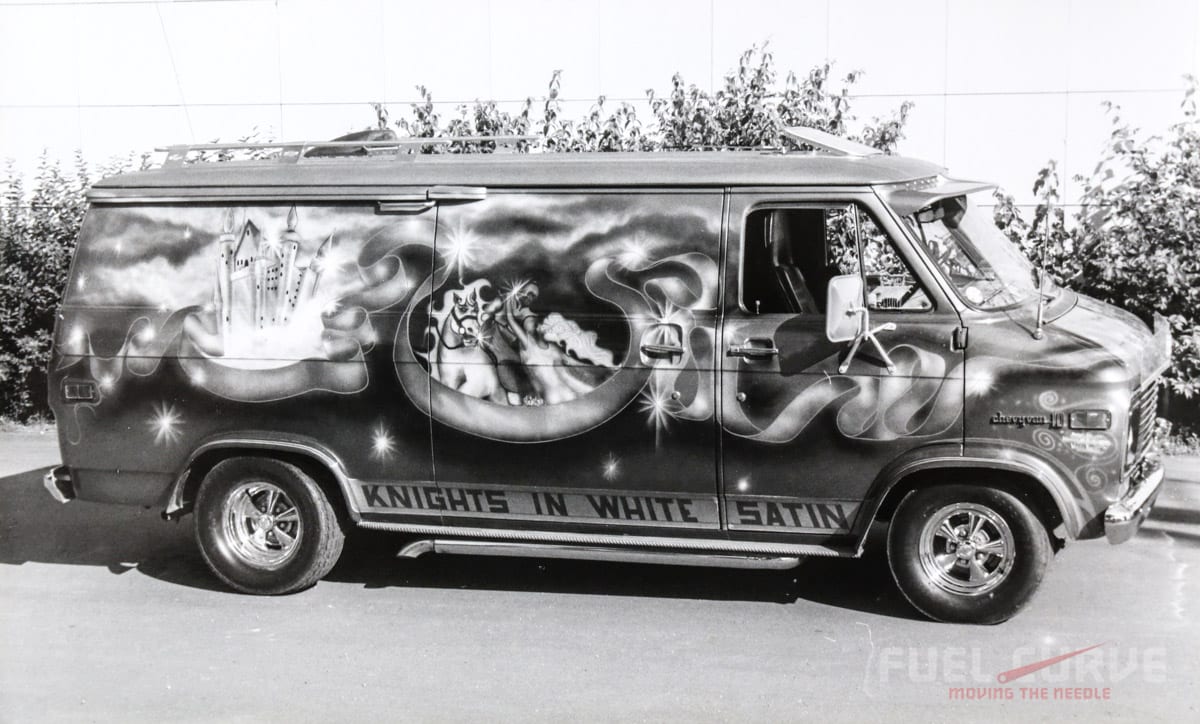
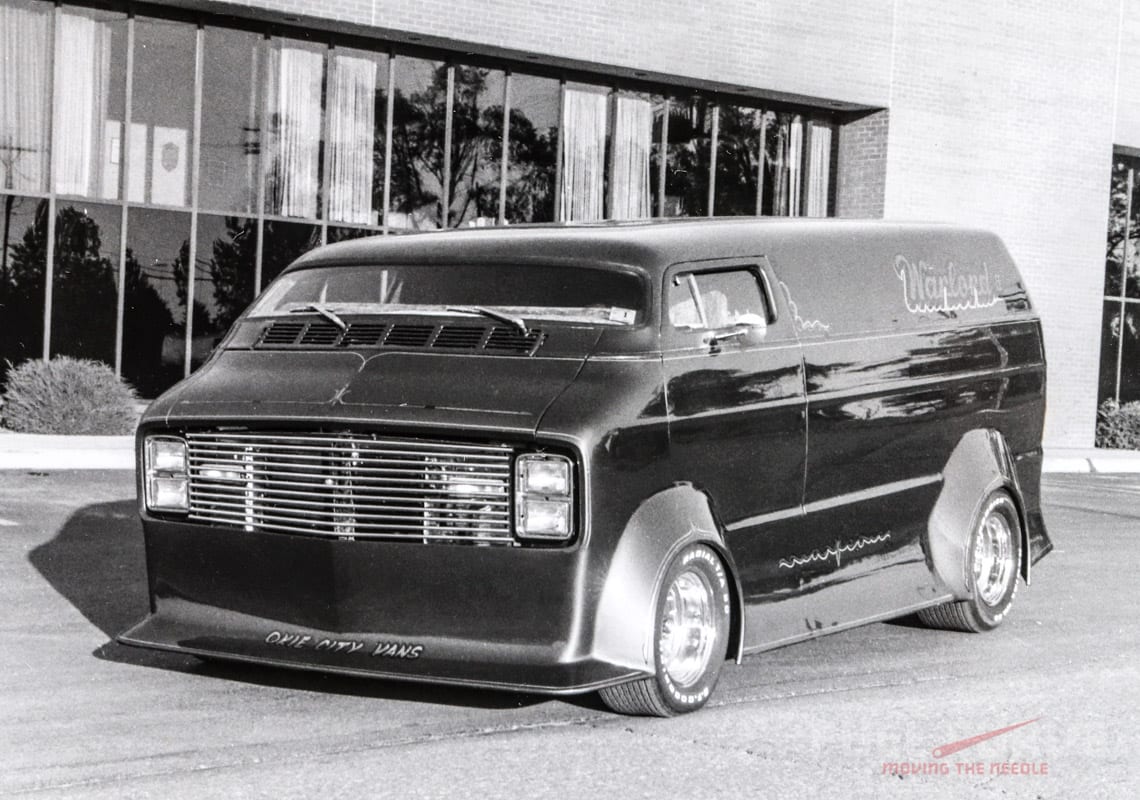
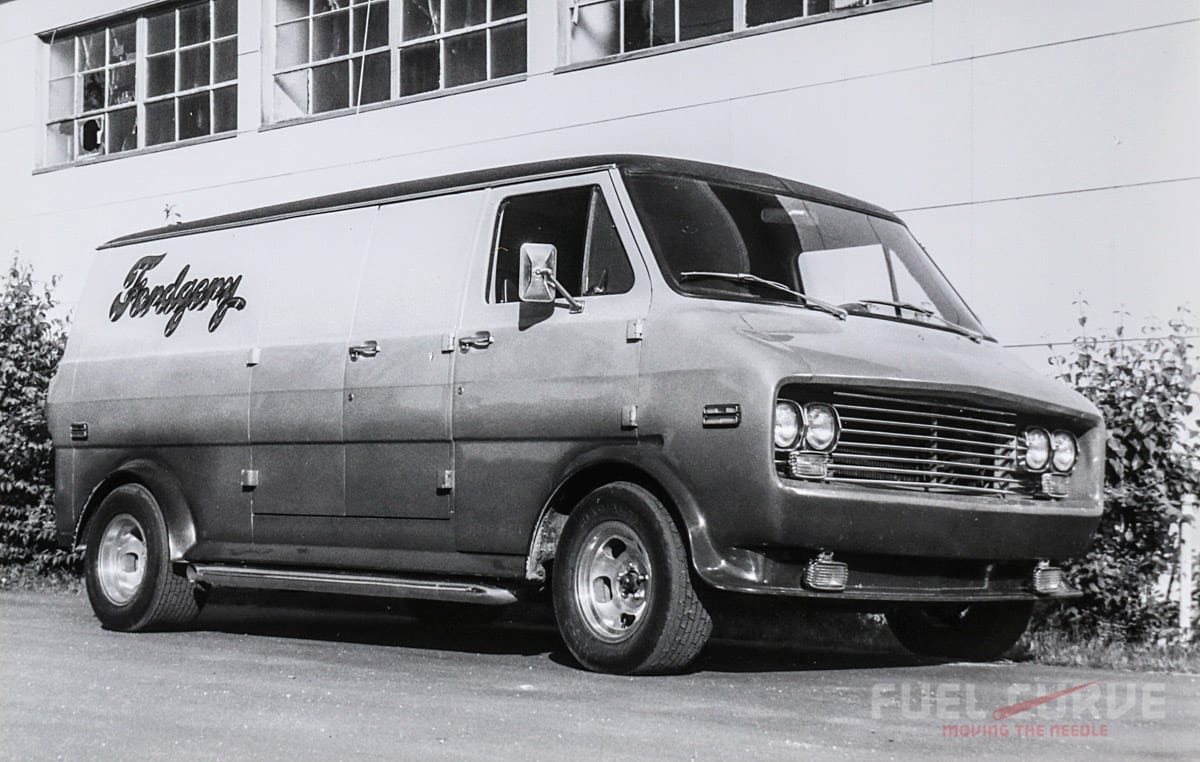 Custom-crazy enthusiasts could really go wild with vans – and they did! From chopped tops to wheel flares, side pipes, wild paint, graphics and murals, these people movers got the full treatment!
Custom-crazy enthusiasts could really go wild with vans – and they did! From chopped tops to wheel flares, side pipes, wild paint, graphics and murals, these people movers got the full treatment!
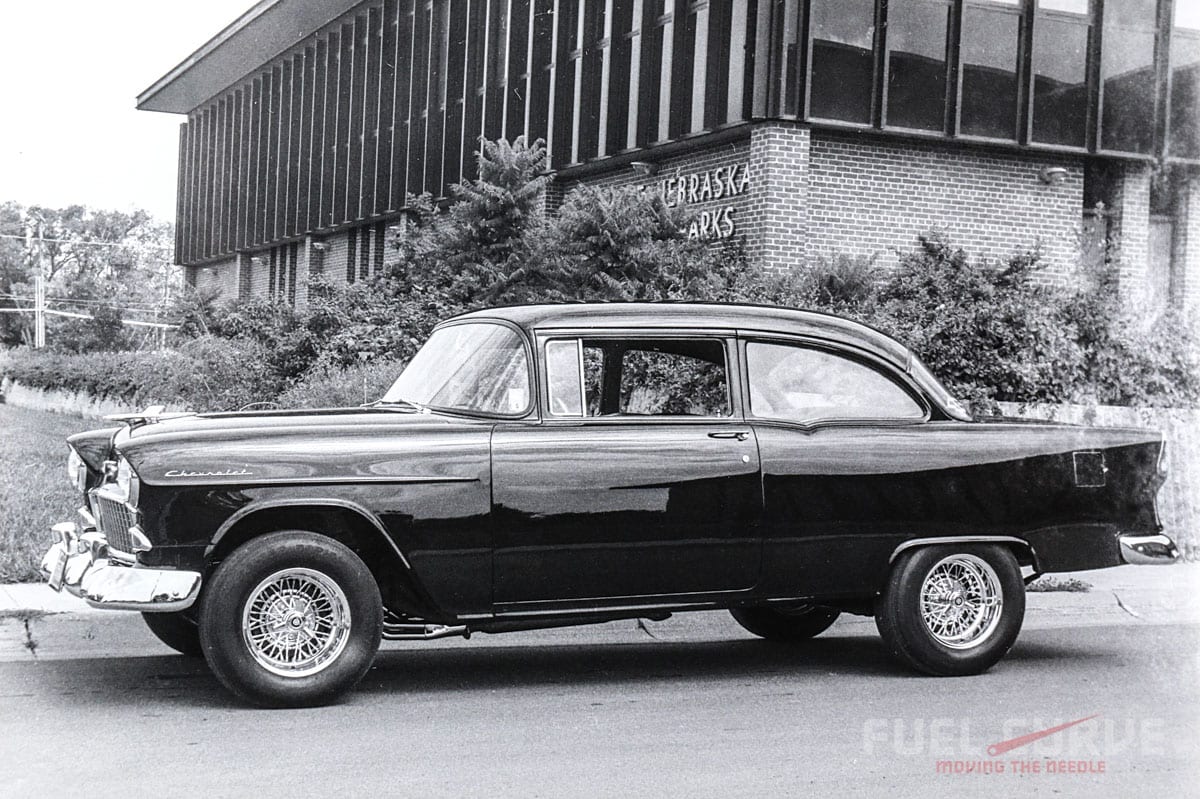 There were some more conservative street machines in this era, as evidenced by Ron Flynn’s ’55 Chevy with simple black paint and wire wheels.
There were some more conservative street machines in this era, as evidenced by Ron Flynn’s ’55 Chevy with simple black paint and wire wheels.
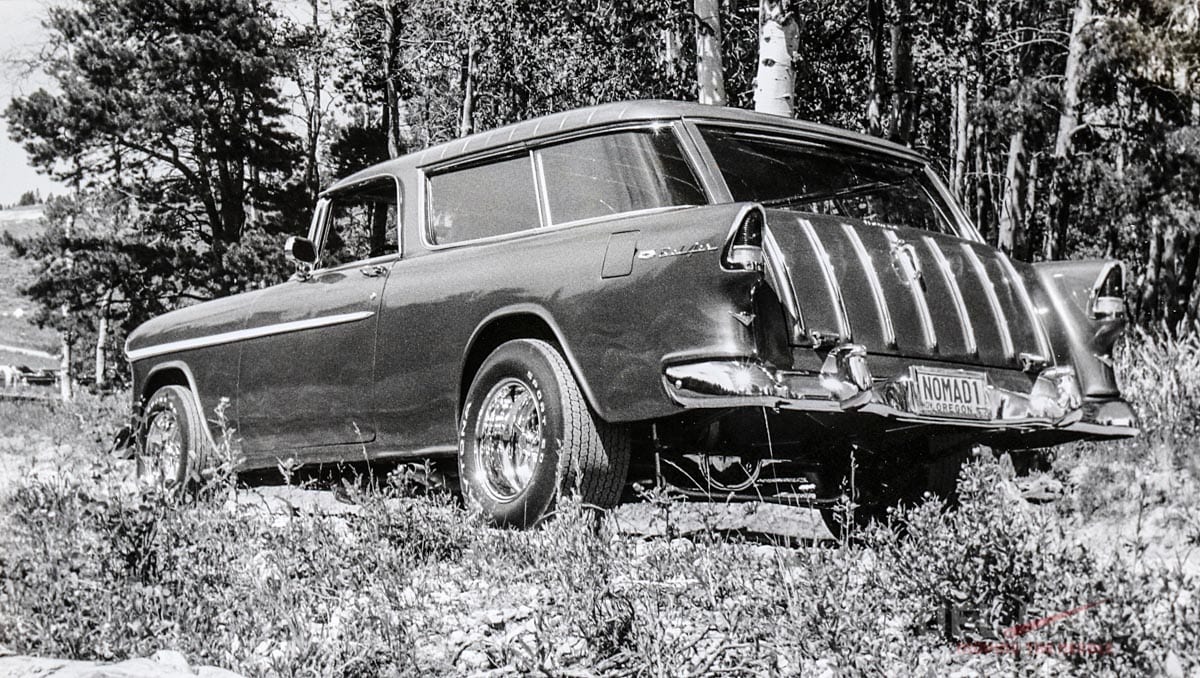
Dan Budlong’s Oregon-based ’55 Nomad captures the look of the era with deep-dish mags, white-letter tires and a lifted stance. Notice the chrome rearend peeking out from underneath.
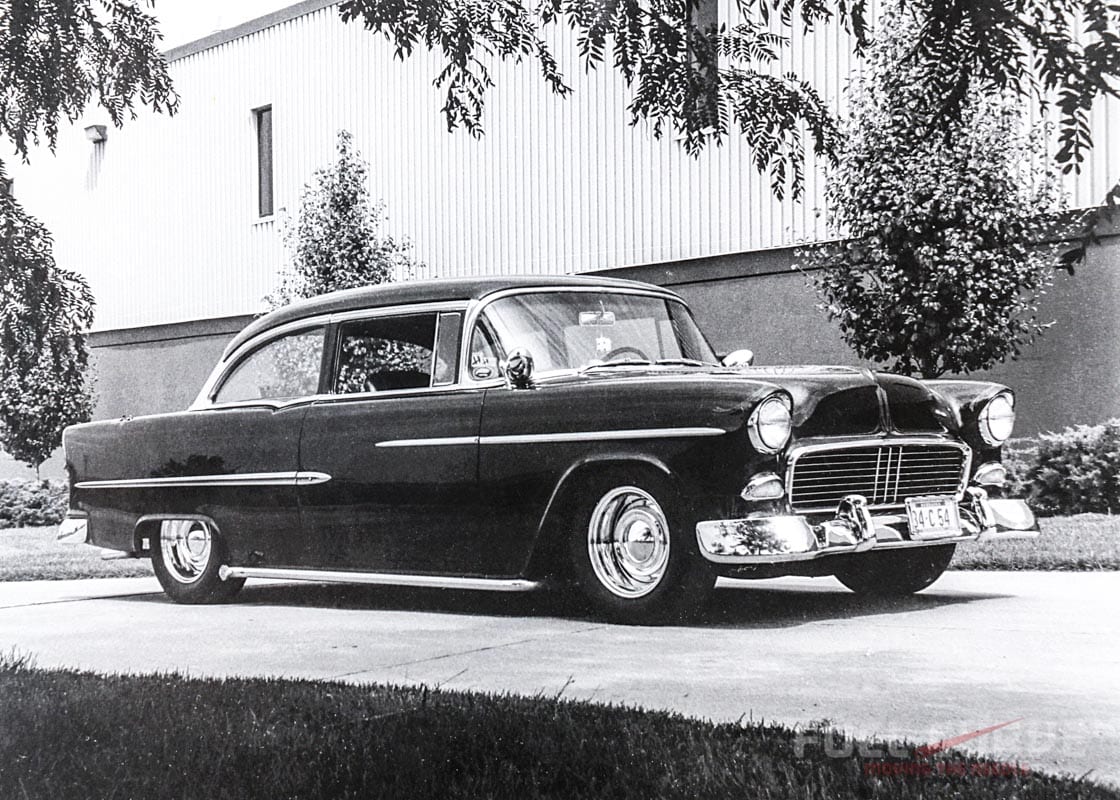
A few traditional-style mild customs began to appear in this era, too, like Gary Gerberding’s clean ’55 Chevy with shaved trim, lakes pipes and spotlights. Gerberding would go on to build quite a few nice customs in the ’80s, ’90s and beyond.
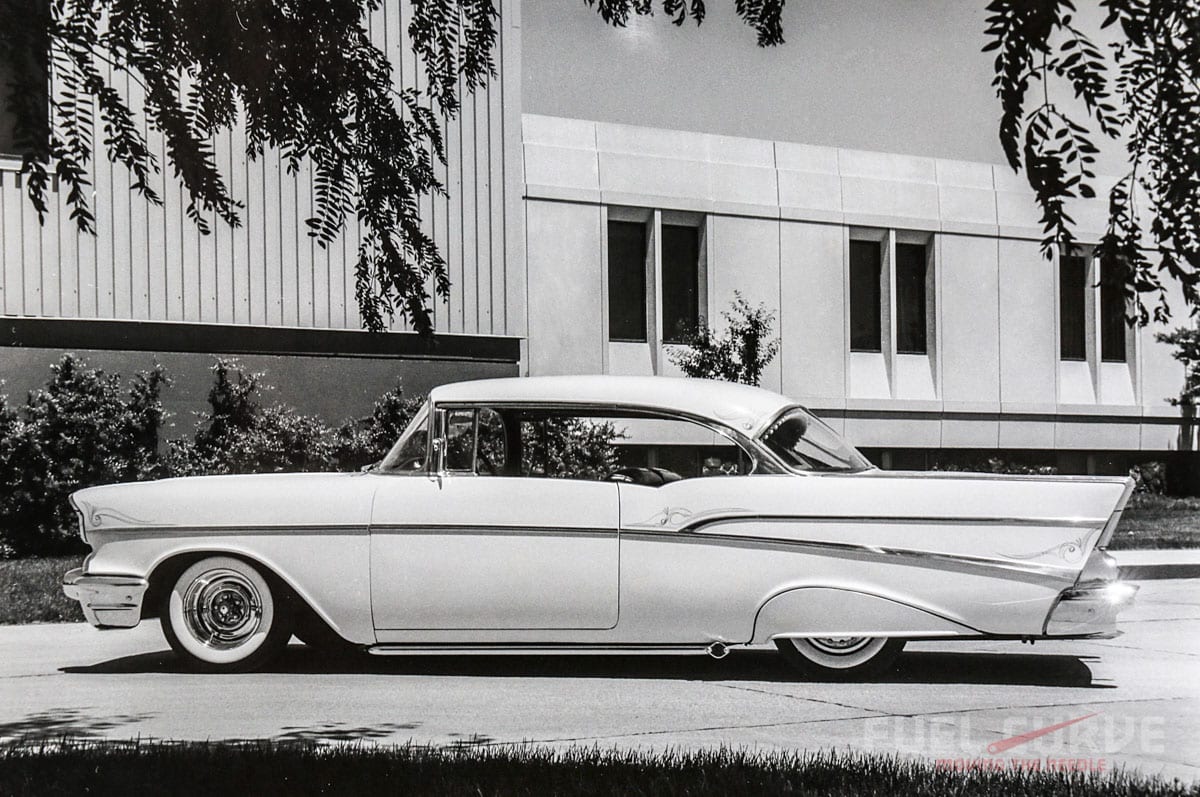
Another clean, mild custom that was almost out of place in 1978 is Dick Dobbelman’s shaved, lowered and ’skirted ’57 Chevy.
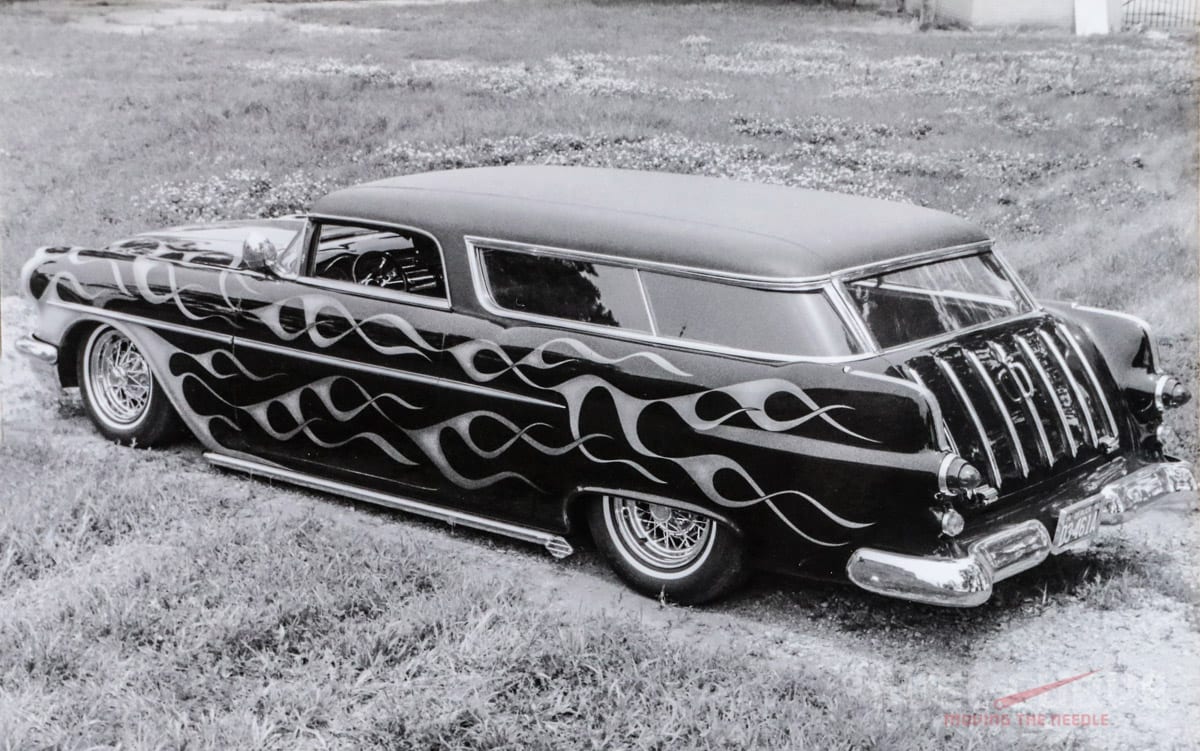 Here’s one that would be just as cool today as it was 40 years ago – a chopped and flamed ’56 Pontiac Safari.
Here’s one that would be just as cool today as it was 40 years ago – a chopped and flamed ’56 Pontiac Safari.
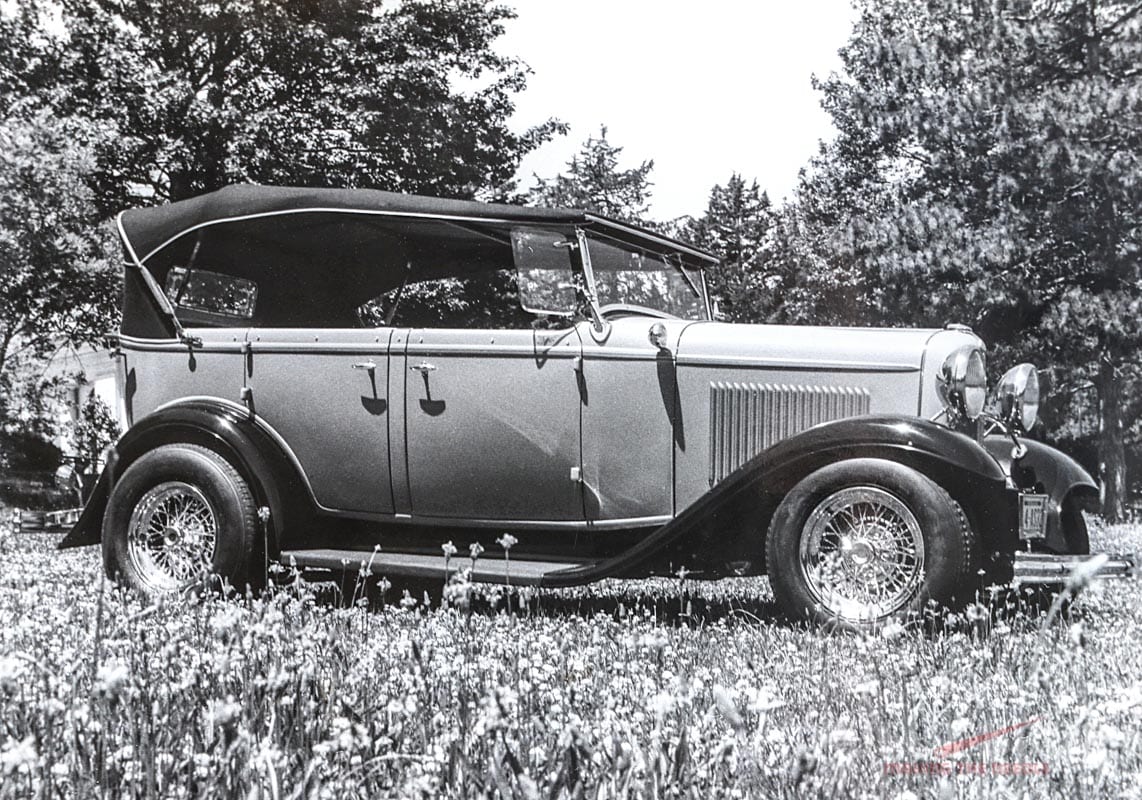
A perfect example of resto-rod style, Roger Peters’ Deuce Phaeton was based on a Gibbon fiberglass body.
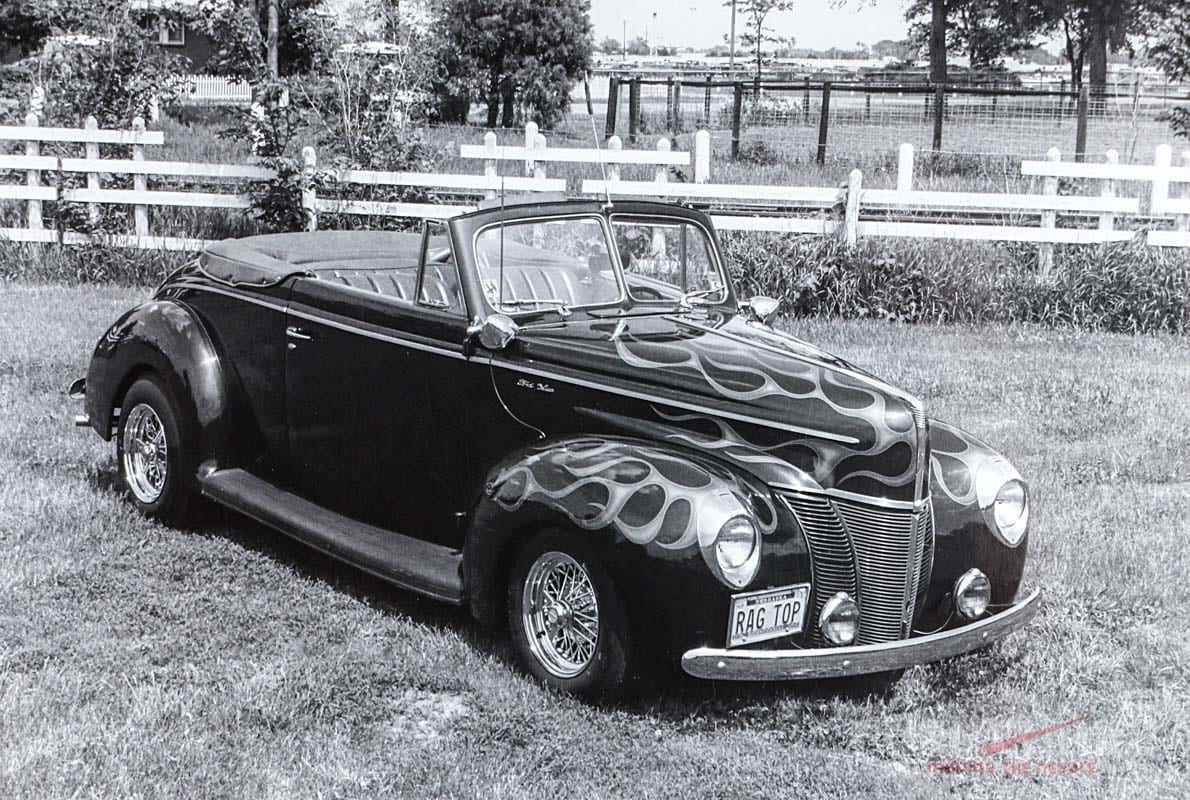
Wire wheels and flames gave some flair to Don Limpach’s resto-rod ’40 Ford convertible.
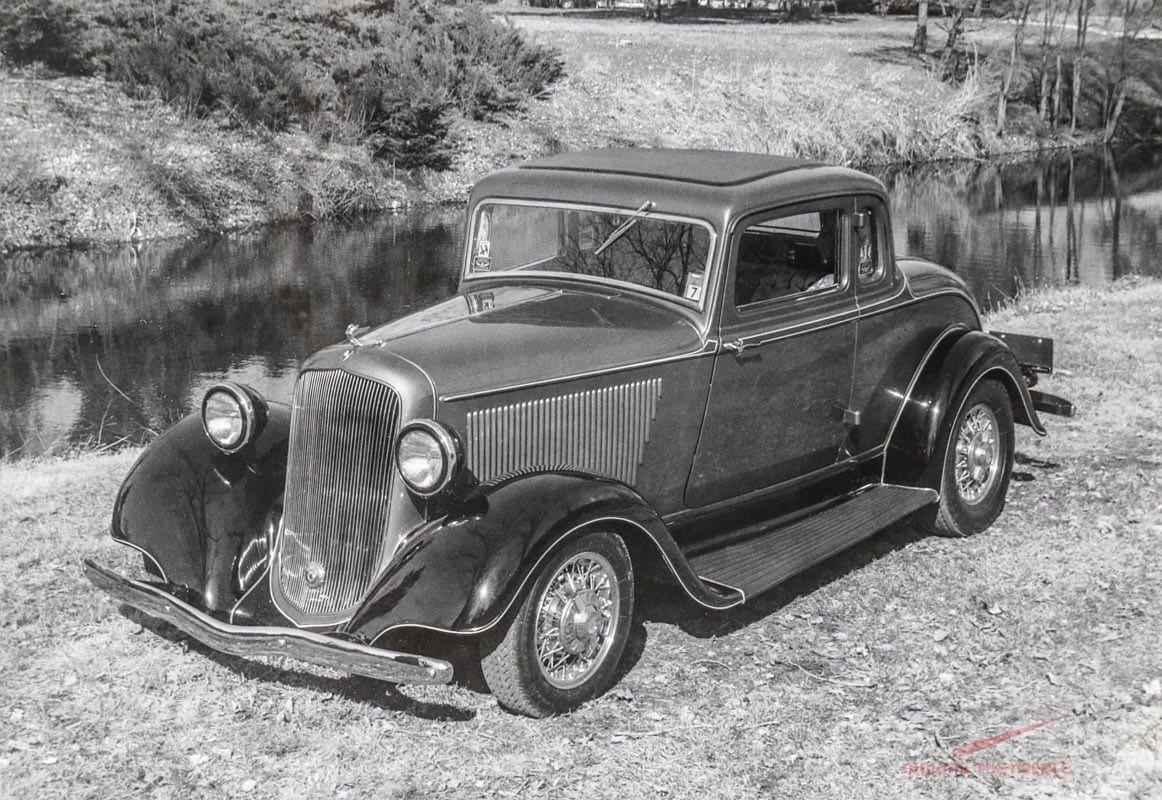
Boyd Jones showed that Mopars could be cool resto rods, too, with his ’33 Plymouth coupe.
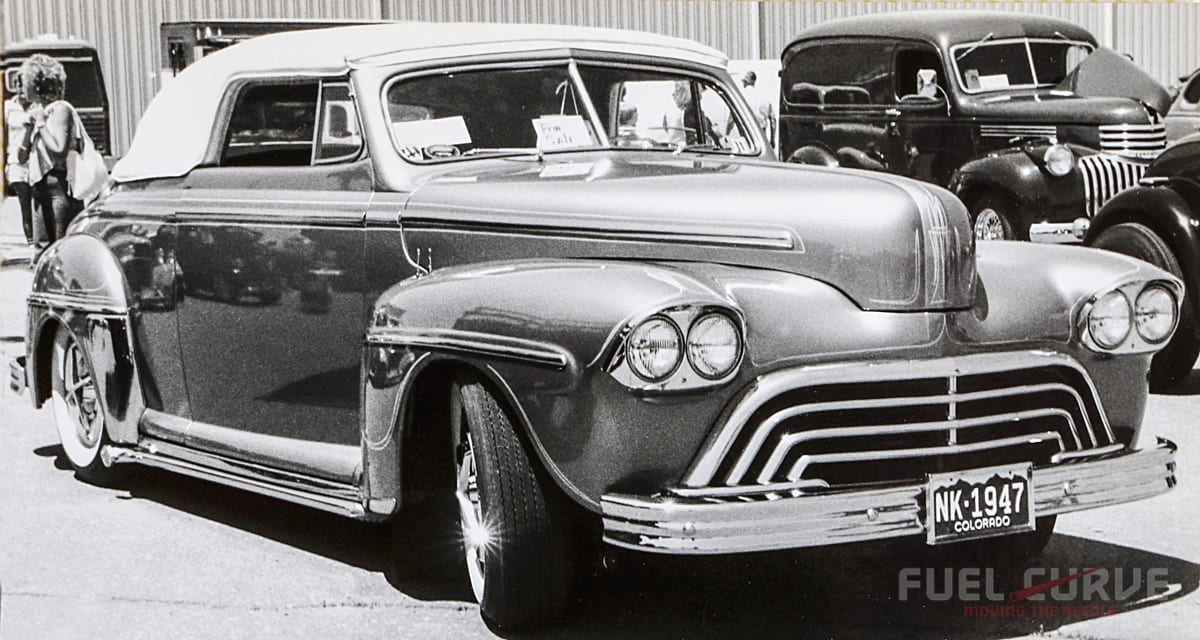
Originally built in the late-50s, this Colorado-based custom ’47 Ford resurfaced in the late-70s and was restored to its earlier custom condition with lime green paint, quad lights, an Olds grille and a chopped top.
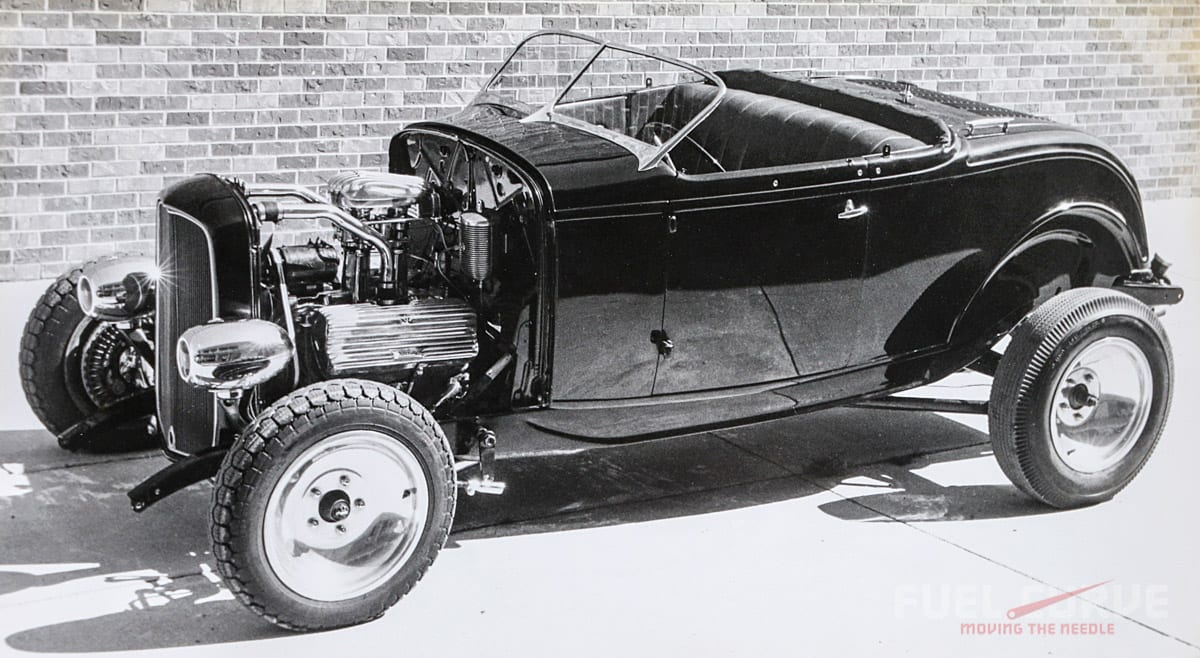
There were a few rodders carrying the traditional flag in the late-70s, including Tom Donahue of Scottsbluff, Nebraska, who built this Deuce highboy with smooth Halibrands, E&J headlights, DuVall windshield and a hot Flathead with an OHV conversion.
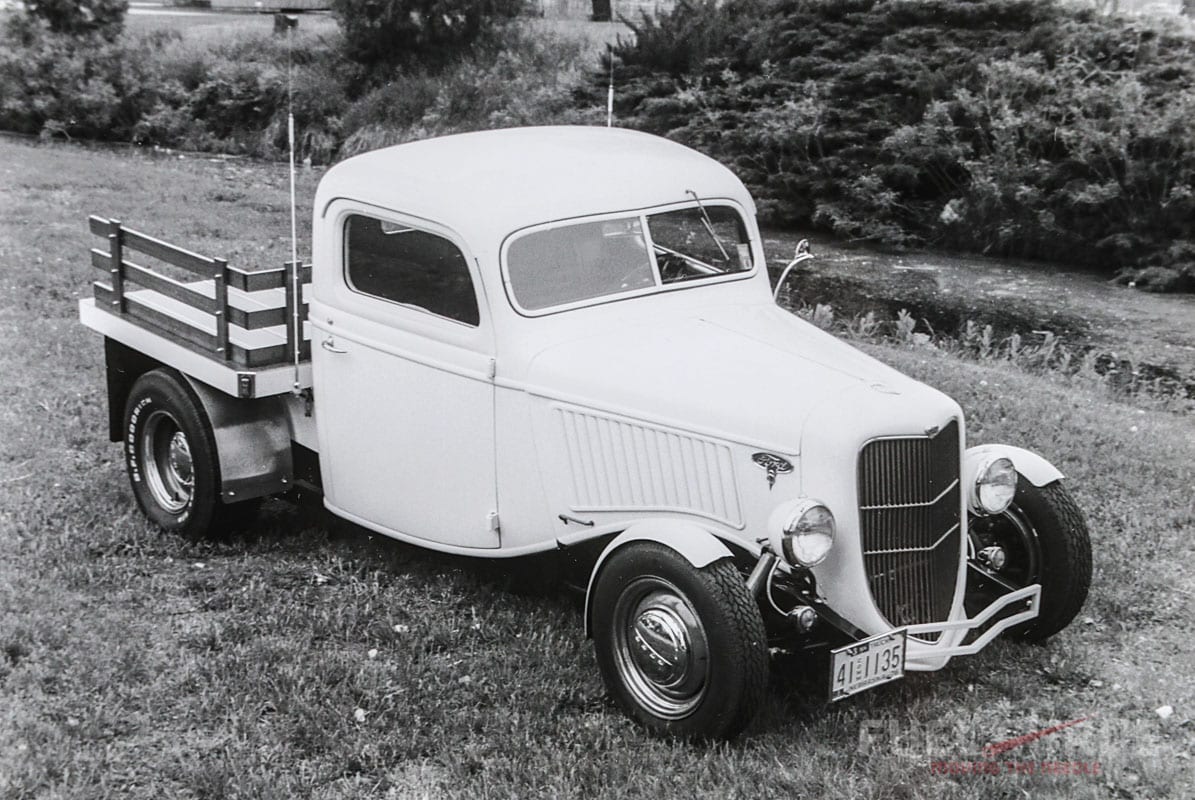
Decades before fenderless mid-30s Ford trucks would be popularized by rat rodders, Bob Nordberg built this flatbed ’35 Ford powered by a Chevy six-banger.
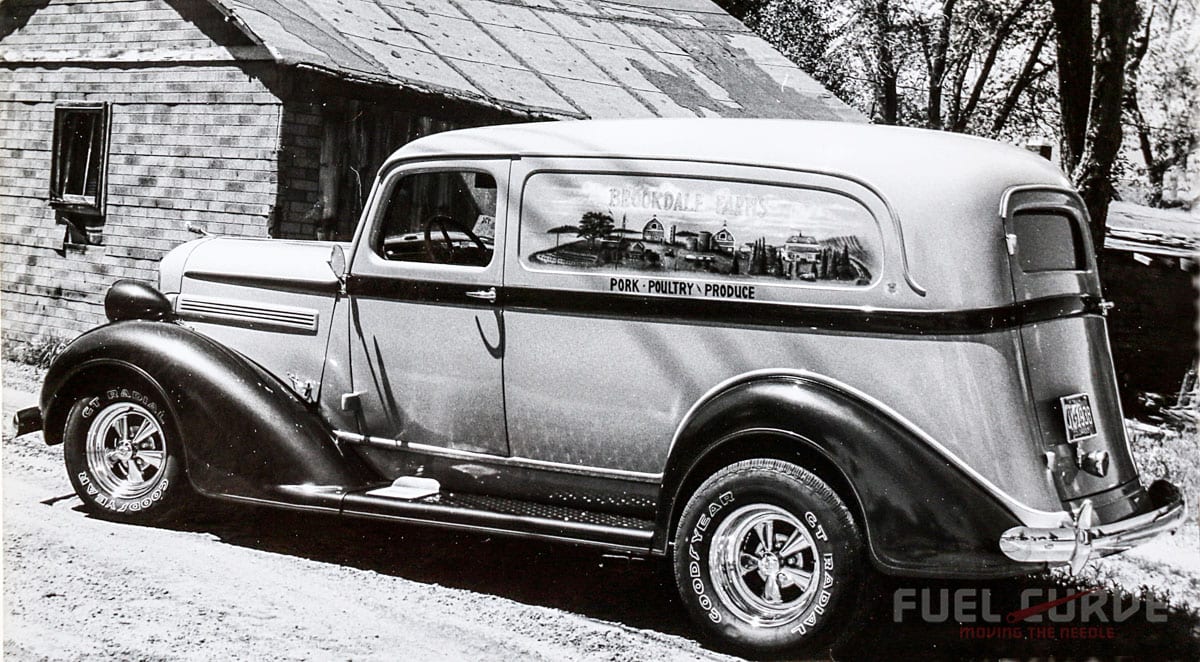
Even in the late-70s, this ’38 Dodge sedan delivery was a rare find. Darryl Roberts built it into a street rod with the requisite custom mural.
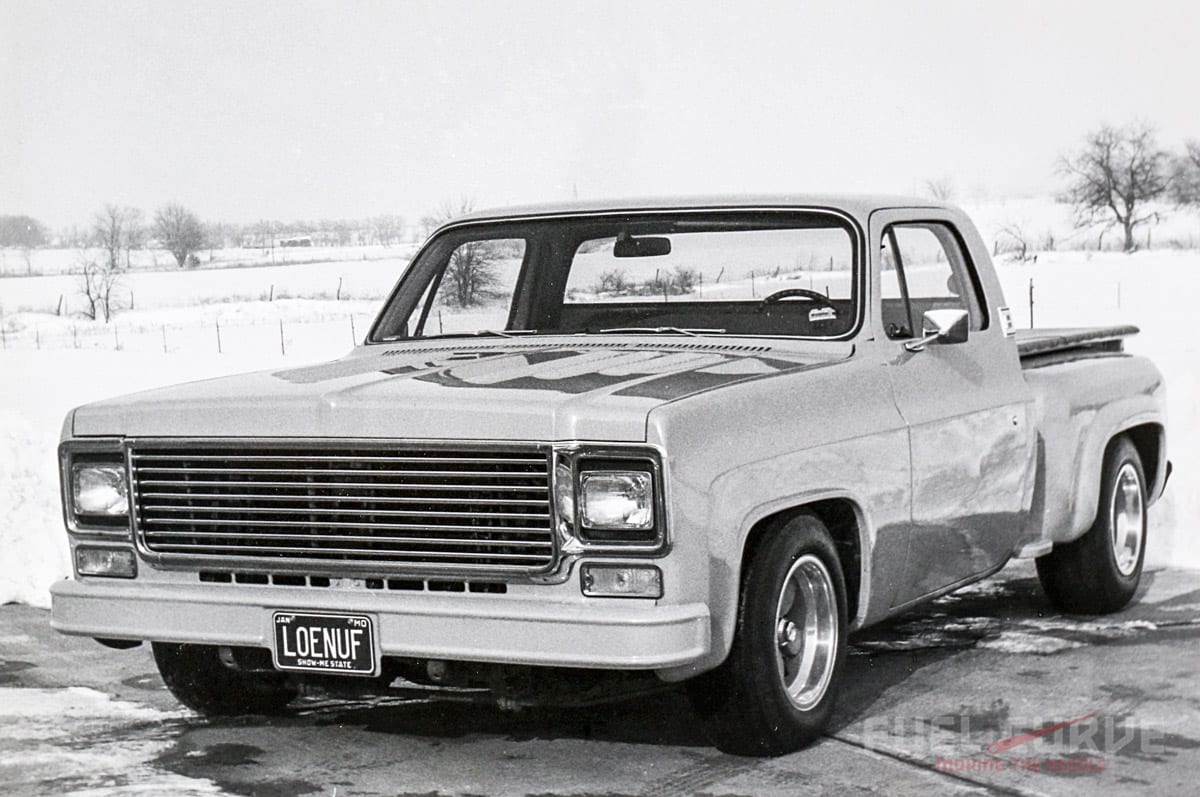
Squarebody GM trucks have been popular custom fodder since new. This chopped yellow ’78 GMC was built by Curt Cunningham, who founded Carriage Works, makers of custom grilles and billet truck accessories.
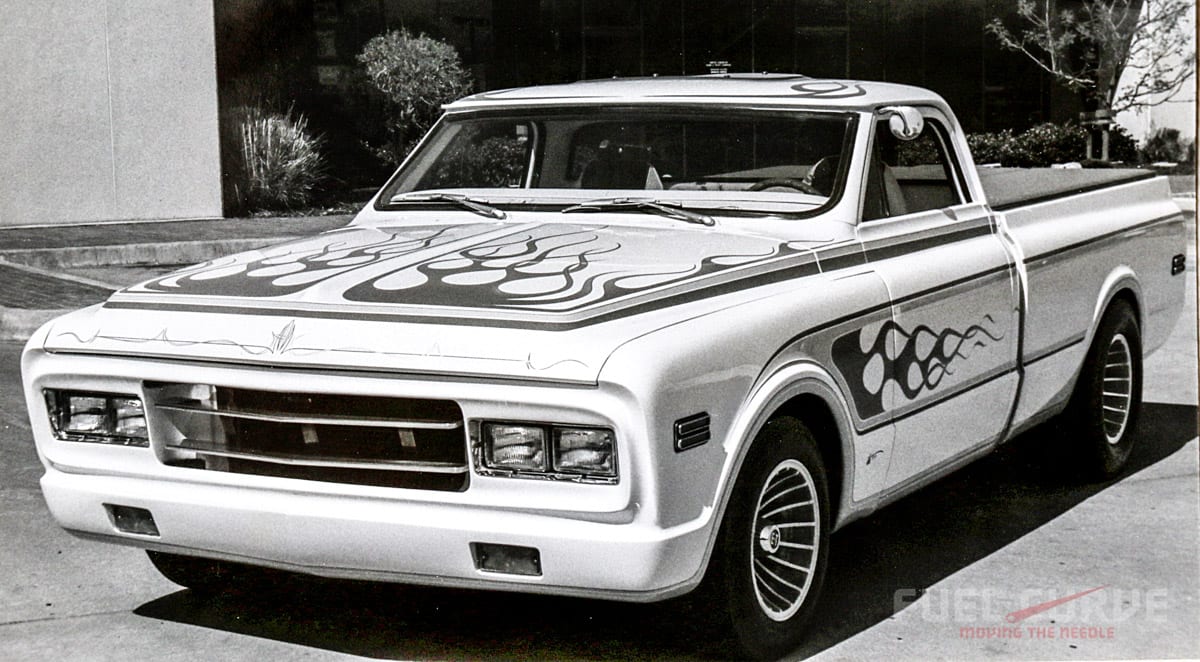
Another chopped pickup – this one a little more radical with a custom grille and headlights, plus striping, flames and “turbo mags.”
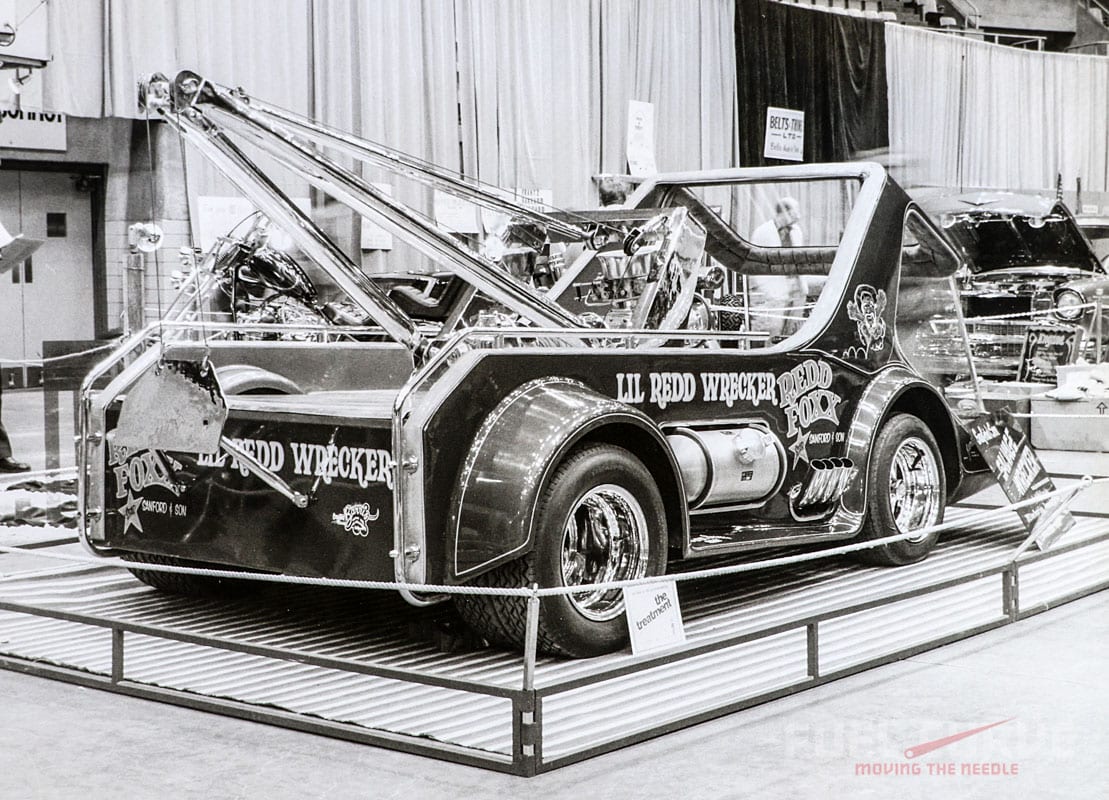
Originally built by Dick Dean as the Turnpike Hauler, this wild show rod was painted red and renamed the Lil’ Red Wrecker by the time this photo was shot in the late-70s.
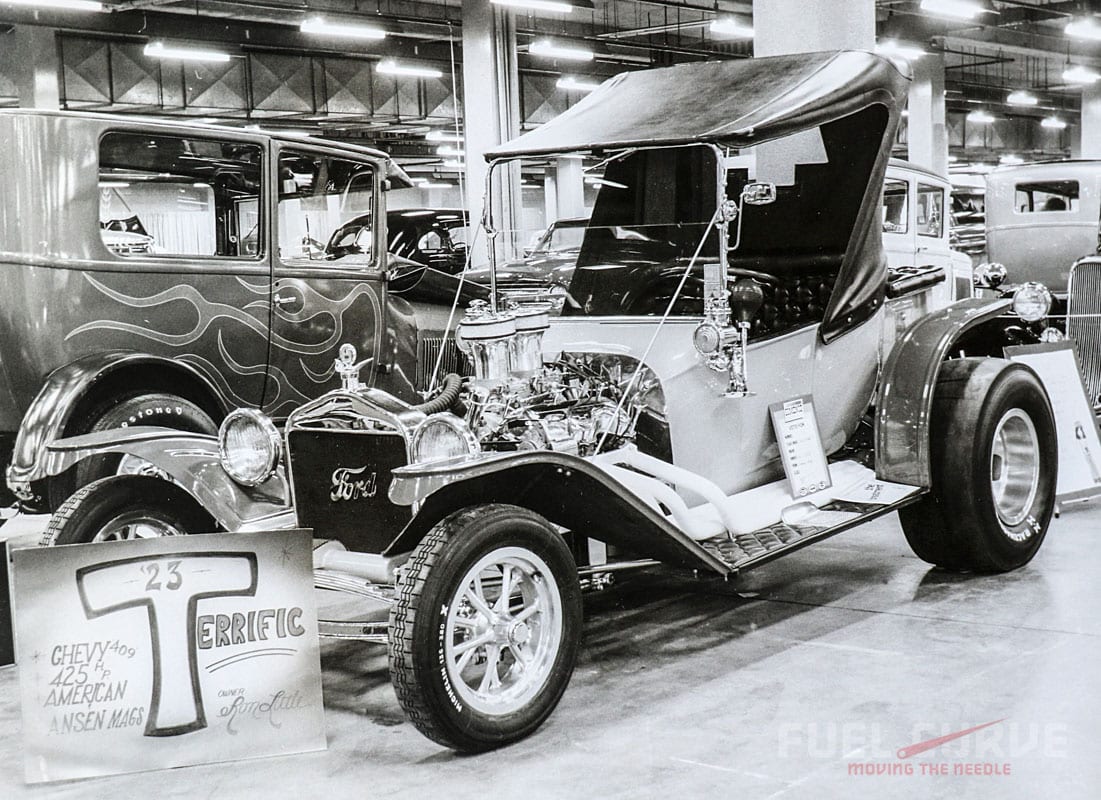
T-buckets seemed to be everywhere in the 70s, and Ron Little’s version – with a 409, dual quads and velocity stacks – is an era-perfect example.
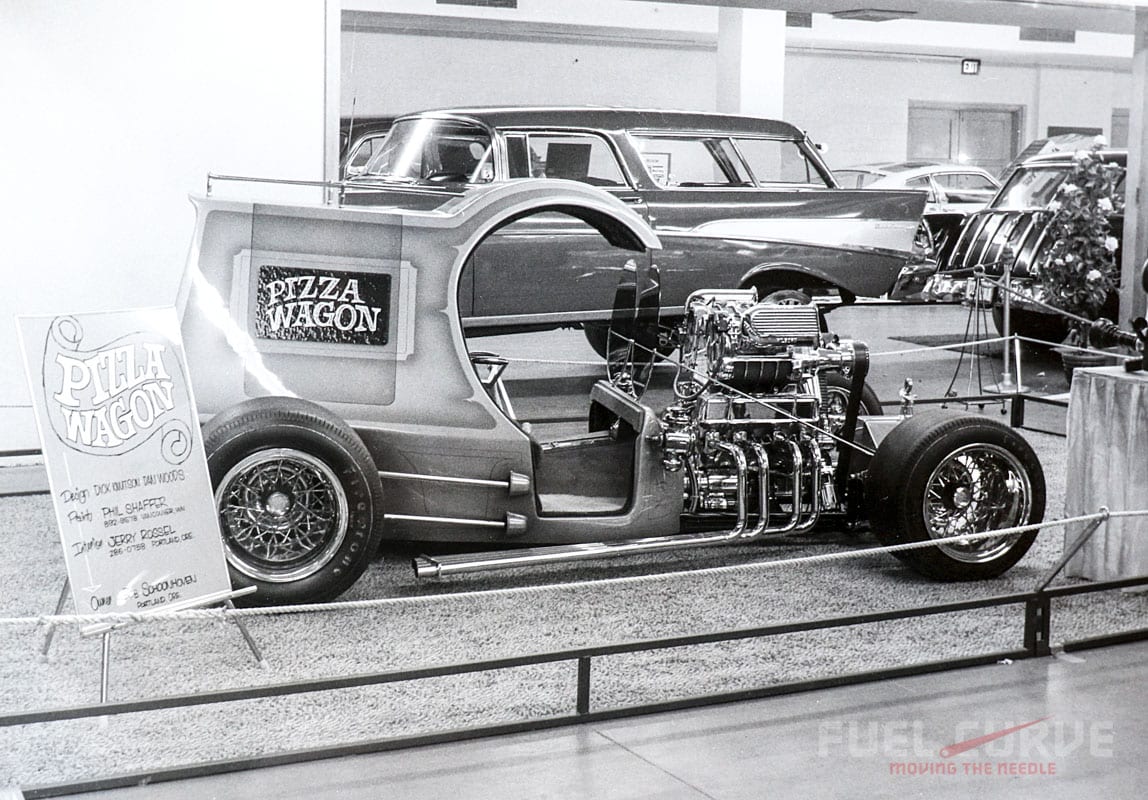
Bob Schoonhoven’s radical Pizza Wagon was another well-known show rod that spoke to the excesses and zaniness of the 70s rodding scene.
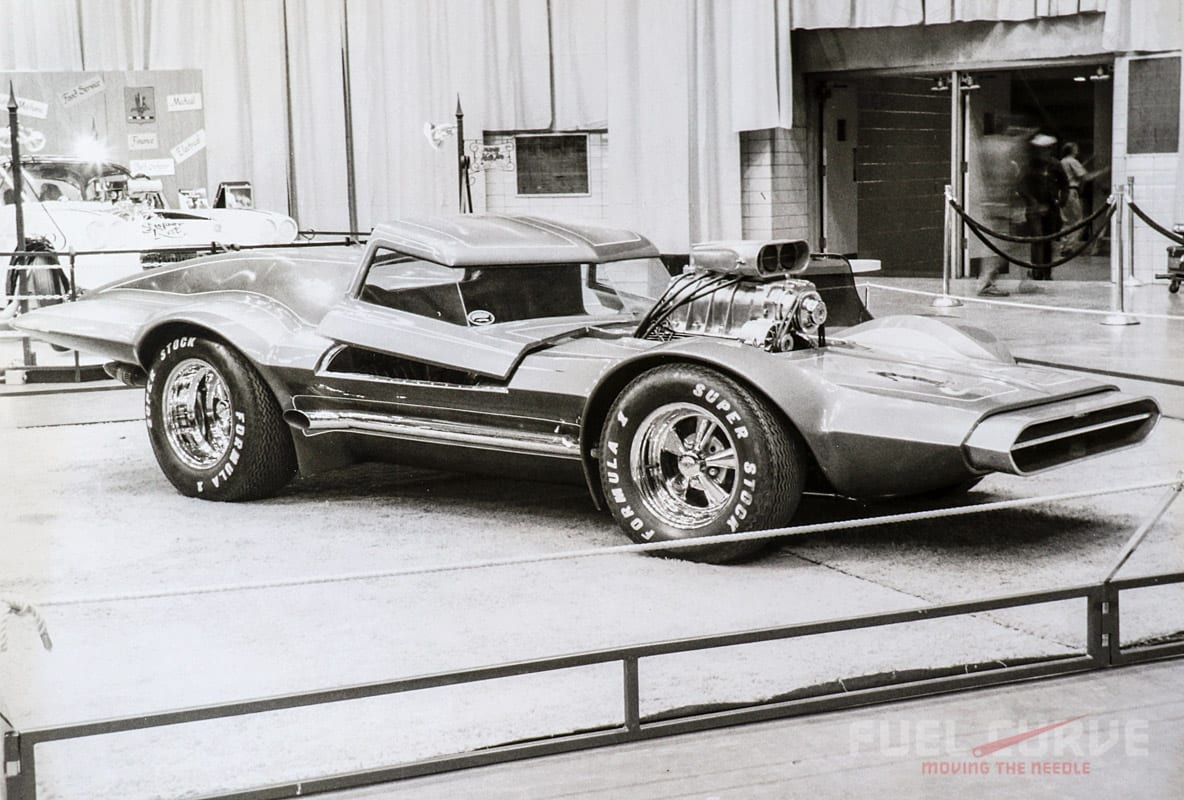
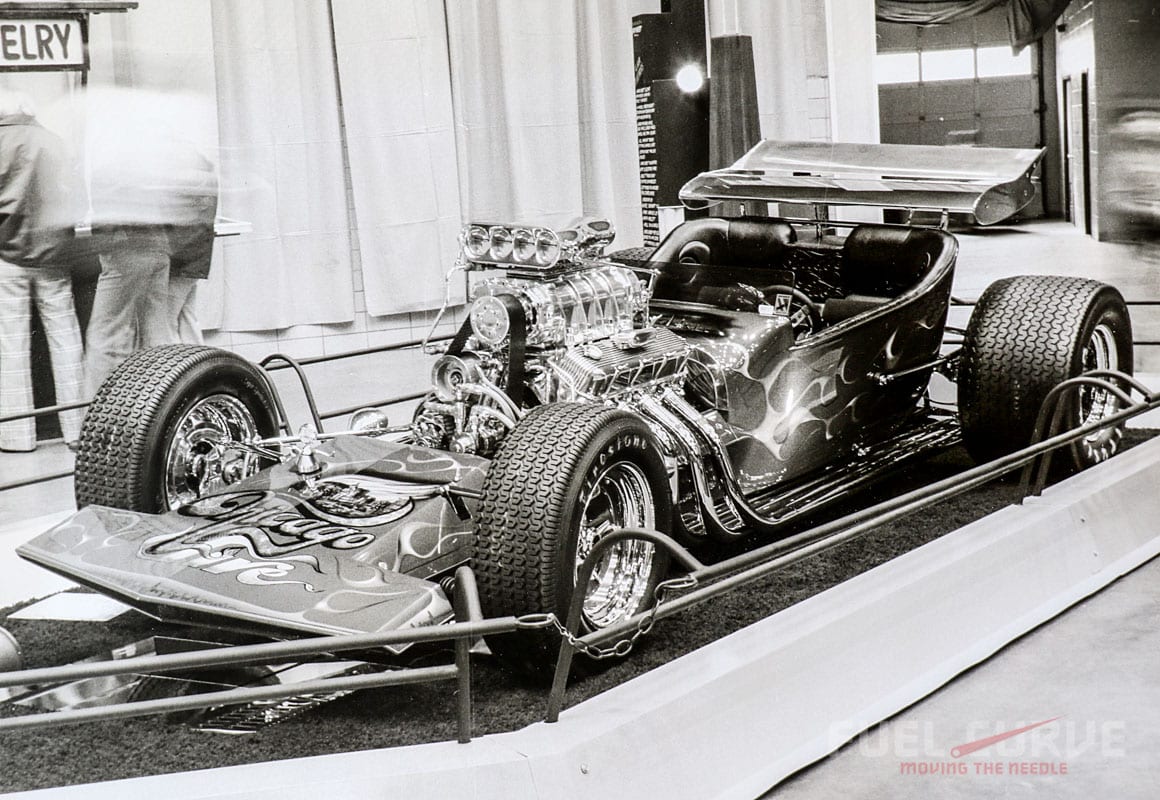
Wild show rods like these were like Hot Wheels come to life, giving the 70s a flavor all its own.

